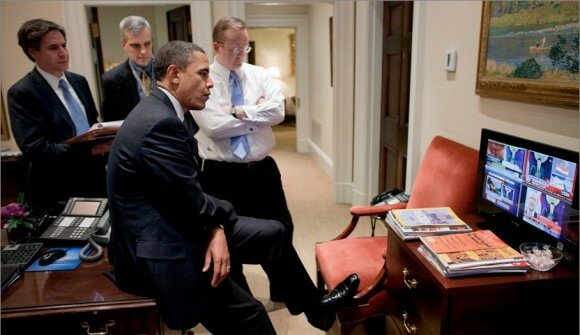
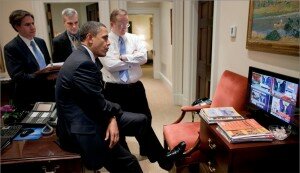
Photo by White House 2011
David Kenner wrote this week about President Obama’s news sources for Foreign Policy‘s Passportblog:
With one sentence, the New York Times raised dozens of Middle East pundits’ hopes that their words were reaching the most powerful man in the world. “At night in the family residence…Mr. Obama often surfs the blogs of experts on Arab affairs or regional news sites to get a local flavor for events,” read Mark Landler’s account of how the Obama administration will attempt to use the killing of Osama bin Laden to recast the U.S. relationship with the Arab world.
Well, Mr. President, we have some late-night reading suggestions for you.
Mr. Kenner generously suggested that the president read Small World News’ Alive in Libya as one of his late night sources, putting us in esteemed company alongside blogs like Joshua Landis’ Syria Comment and Reidar Visser’s Iraq & Gulf Analysis.
But counting decision makers in Washington among your readers is worth much more than flattery and bragging rights. Mr. Kenner has highlighted one of the most important functions of citizen media, that of providing the premiere source of context for the issues that affect us most.
Citizen media empowers and enables local citizens to tell their own story, report their own news, and communicate their own perspective to the outside world. Locals Alive In a country understand the context, the history, and the details of important news stories more thoroughly than reporters alive from the country. Local citizens are able to understand the news for what it is, and how it directly affects them. It is these voices that are under-represented, or not represented at all, in traditional, mainstream media.
Small World News in particular is concerned with allowing the viewer access to the daily lives, feelings, and opinions of citizens on the ground, the so-called “human element” of journalism. It is these seemingly ordinary experiences that truly allow the viewer to experience the extraordinary, the events that move and shape the world we all live in.
Combining both the understanding of and empathy with local citizens provides the viewer with the ultimate context for any news story. The importance of this context, for viewers, policy makers, and officials, cannot be overstated.
For more citizen media from Small World News, see some of the other projects in our Alive.In series:
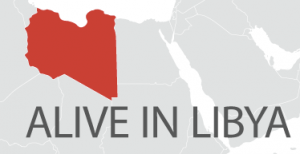
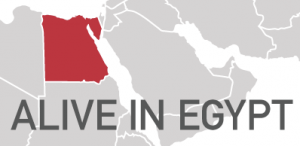
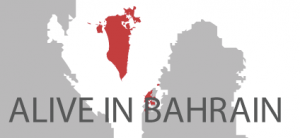
Alive in Libya, Blog, Small World News Blog
[...] Source: https://smallworldnews.tv/2011/05/13/citizen-media-context-for-decision-makers/ [...]
[...] cellphones to the homeless) will “percolate to the top.” As Small World News has noted in the past, the stories of local citizens on the ground add much needed context for journalists, analysts, and [...]
[...] for Decision MakersPublished on 10 June 2011 by Josh in Alive in Libya, Small World News Blog 0Previously we’ve written here about how citizen media – the stories of those on the ground – can be used to provide [...]